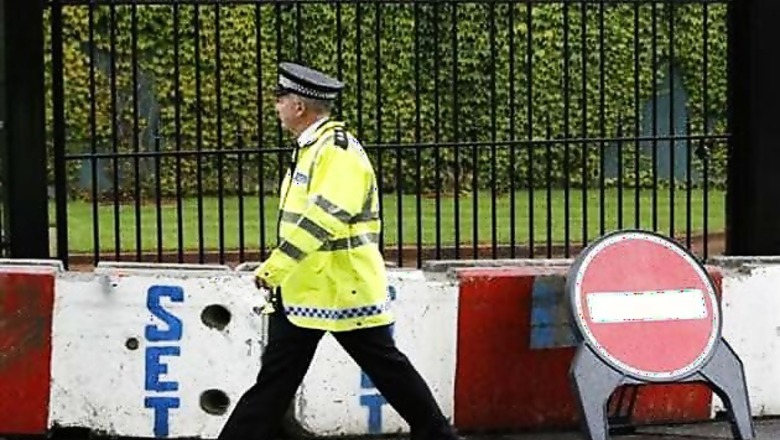
views
Britain's new crime-fighting agency starts work on Monday with the power to mobilise intelligence from multiple sources and direct police forces across the country to tackle drug gangs, corruption, cyber crime and child sex abuse.
The National Crime Agency, dubbed Britain's version of the US Federal Bureau of Investigation (FBI) by media, will consist of more than 4,000 officers and will take on many of the duties of its widely criticised predecessor, the Serious Organised Crime Agency (SOCA), while also having additional powers.
NCA Director General Keith Bristow also promised a new relationship with the private sector to combat white-collar crime, actively seeking bankers to work as unpaid "specials".
"There will be no one beyond the reach of law enforcement or beyond the reach of the NCA," Bristow told reporters at a briefing ahead of the agency's launch. "Those people involved in the most horrible activities can expect the most comprehensive and robust responses."
The NCA will have the first national intelligence hub, a national unit to tackle cyber crime, and will take the lead in coordinating the police response to cross-border drugs gangs, complex international fraud, and online child sex abusers.
The agency estimates there are some 37,000 individuals spread across 5,500 groups involved in organised crime in Britain, with the annual cost of fraud from such gangs amounting to almost 9 billion pounds.
Unlike the FBI, however, the NCA will not be involved in national security or counter-terrorism, although that might change in the future once it is established.
Prime Minister David Cameron's government decided to replace the SOCA shortly after coming to power in 2010.
Bristow said he wanted to establish a different relationship with the private sector to better understand areas of crime such as fraud that remain under-reported and under-recorded.
"Banks, for instance, are aware of fraud and for a variety of reasons may or may nor report that to law enforcement," said Bristow, a former police chief constable based in central England.
"There's a good example of where we need to work differently with the banks."
BANKING "SPECIALS"
The agency will also recruit NCA "specials" - similar to special constables who act as volunteer police officers - with skills in areas such as finance to help uncover how some criminals hide their assets.
"We will want people, for instance, who understand banking," said Bristow.
He said there had been no shortage of interest.
"We have got people queuing up outside the door. I think sometimes it's underplayed the level of energy that there is sat within the private sector to do good things for the public as well as to deliver for shareholders."
Britain introduced a tough law to clamp down on bribery in 2011 and Bristow said he expected this would be an important area for the NCA.
"It's a threat we are increasingly starting to understand and we have got a key role in ensuring that we develop that understanding and take appropriate, proportionate action," he said.
He played down suggestions the agency could take over the work of the Serious Fraud Office, which has come in for much criticism following massive blunders in some high-profile cases.
The NCA begins life without anyone to head its economic crime command, one of its four divisions, after Jeremy Outen, a former KPMG partner who was chosen for the role, quit for personal reasons earlier this year.

















Comments
0 comment